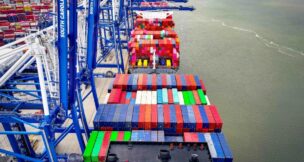Upstate officials say economy depends on innovation
Staff //August 2, 2018//
The Upstate can be somewhat particular about the companies it recruits to the area, according to economic developers from Greenville, Spartanburg and Anderson counties, who credit the evolution of the Upstate to BMW’s decision to set up production in the region. But as the Upstate has moved from a textile community to one with a diverse manufacturing base, the challenge now is to embrace innovation and the opportunities it may present.
“We do have to look a little harder at capturing and embracing innovation, especially in the transportation area,” said H.G. “Butch” Kirven Jr., chairman of the Greenville County Council. “We have an opportunity here through Clemson and CU-ICAR and other assets to bring in companies that will be leaders in innovation of this new technology to bring value to our area — not only intellectual value, but product value and investments.
“And then we have to think larger and beyond just the typical jobs and investment to how we can integrate entrepreneurship and health care and tourism and retirement industries. All of those have major economic impacts with investment opportunities.”
Kirven acknowledged Spartanburg and Anderson counties have more room for recruiting industry while Greenville County has some geographical restraints.
“Spartanburg County has a lot more land and terrain suitable for plants. Anderson County has the same thing. But we have several rivers flowing through Greenville County; and we’ve got a narrow strip of I-85, much less than Spartanburg and Anderson counties, so we have to target high value industries with a smaller footprint,” Kirven said.
While Spartanburg County also can be particular about who it recruits to invest in the county, David Britt, chairman of Spartanburg County Council’s economic development committee, said it wasn’t always that way.
“For 100 years the textile industry ran Spartanburg County. The industry employed basically everyone,” Britt said. “Then, in the 1980s, all those companies left the county and the Upstate for Mexico or India.”
Britt said Spartanburg County, at that time, was taking any kind of investment it could get. But that is no longer the case.
“Since BMW came here we’ve had $17 billion invested in our county,” he said. “Those 25,000 textile jobs that we lost, we replaced with 55,000 jobs.
“We don’t take everything that comes along now. We want companies who are going to raise the bar for us,” Britt said.
In looking at innovation as an economic factor, Rusty Burns, Anderson County administrator, said his county is developing a technical high school, which will be located next to Tri-County Technical College in Pendleton.
“You will literally be able to finish up your high school education, walk to Tri-County Tech, then come out with a degree and make $65,000 to $70,000 a year,” he said.
Taking care of what already exists is a priority in Anderson County, though, along with embracing change, according to Burns. He said the one thing that sells Anderson County to industry is the existing industry base.
“We put in a lot of time and a lot of effort to have a whole team devoted to taking care of our existing industries,” he said. “We want to know what’s happening with them and what we can do to help them. They are our greatest ambassadors.”
Taking care of existing industry also means addressing tariff talk, he said.
“We have companies we are working with, like Electrolux. They are going to be impacted by tariffs,” Burns said. “But we really don’t know where this tariff situation is going to go or what the final outcome is going to be.”
Britt pointed out that tariffs won’t just impact BMW.
“We have 211 international companies here, and only about 30% of those have anything to do with automotive,” he said.
Britt, who is vice president of Tindall Corp., said that when tariff talk began back in March, it wasn’t the international companies who began raising prices, but U.S. steel companies, which impacted companies like Tindall.
“Everything we’re buying is being impacted,” he said. “So at Tindall our prices have gone up for our customers, who are passing it on to their customers. This is a serious situation and I’m hoping there is enough pressure on people in charge to rethink this.”
T















